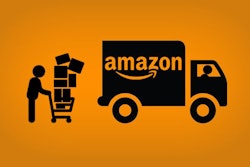EASING
DISTRIBUTORS’
FEARS ABOUT
CLOUD ERP
BROUGHT
TO YOU BY:
A LOOK AT THE BIGGEST CONCERNS REGARDING CLOUD
ERP SOFTWARE, AND HOW IT IS GEARED TO TACKLE THEM
For decades, business-to-business distributors have been utilizing software to reduce labor costs,
manage data, process transactions and
more. And as long as there have been
advances in business software, there have
been fears and resistance to change.
Just look at e-commerce. Despite its rapid
rise — Forrester Research expects the B2B
e-commerce market to hit $1.18 trillion
by 2021 with an annual growth rate of
7.4 percent — distributors have lagged
behind. Industrial Distribution’s “2017
Survey of Distributor Operations” found
that 37 percent of respondents don’t offer
e-commerce, even as industrial products’
buyers preferences have undeniably shifted
towards a digital purchasing preference over
the past decade. Likewise, when workplace
essentials distributor Essendant surveyed
114 janitorial/sanitation resellers in the
fall of 2017, only 53 percent said they had
e-commerce in place.
While e-commerce has become a key
element of many distributors’ business
model, an even more critical element of
distributor operations is ERP software. In less
than 20 years, ERP evolved from automating
internal back-office operations to managing
most critical functions of the business.
Currently, ERP software is undergoing its
biggest evolution yet — the Cloud. Like with
most software developments, consumers
have seen the benefits of cloud-based
offerings for quite some time, while
distributors are getting involved more slowly.
The reasons for distributors’ reluctance to
dive right in are the same associated with
e-commerce — uncertainties. Distributors
are uncertain about if they can afford the
new software; they’re concerned about if it is
right for them; they’re uncertain how to get
their sales team and management to buy-in;
they’re uncertain about when the right time is
to get involved; and they’re uncertain about if
the software will grow with them.
The great news for curious distributors
is that there are simple answers to those
questions in regards to cloud ERP software,
so let’s put those concerns at ease here:
Concern No. 1: Can We Afford
Cloud ERP Software?
With almost any new technology or feature
a distributor adds to their operation, the
first thing management typically looks to is
cost. This is where the difference between
cloud and on-premise ERP systems becomes
especially apparent. Whereas an on-premise
ERP system is installed on a company’s local
hardware and its servers managed by in-
house staff, a cloud ERP system is a vendor-
provided software-as-a-service (SaaS) that
is managed by the vendor via the Internet
2 EASING DISTRIBUTORS’ FEARS ABOUT CLOUD ERP
in a system the customer accesses through
a web browser. From a dollars-and-cents
perspective, this means cloud ERP software
has a lower operating cost since it eliminates
the need for distributors to purchase server,
network and security hardware needed to
maintain this platform.
In its 2015 report, “Benefits Actually Realized
From the Cloud,” research firm Mint Jutras
found that cloud ERP cost savings were not
only realized compared to on-premises,
but also exceeded expectations — all the
way from costs of start-up, to ownership, to
upgrades.
Concern No. 2: Is Cloud ERP
Software Right For My Company?
The simple answer is that if your company
has or plans to use an ERP system, it can
certainly make use of the Cloud for it. The
user doesn’t have to give up anything
between on-premises and the Cloud, as
cloud-based ERP software has the same
ability to take orders, manage accounting
and all the other critical features distributors
use the software for. Conversely, cloud ERP
software allows you to slide more work onto
the vendor, giving you added flexibility about
managing how much of the heavy lifting
you want to do. Just as many distributors
outsource certain services such as delivery,
repairs or product training, cloud ERP
can be viewed as an outsourced part of a
distributors’ business.
Concern No. 3: How Do I Get
Our Sales Team On Board
With A Cloud ERP System?
While Millennials now comprise more than
one-third of the total U.S. workforce, many
distribution companies are still dominated
by long-tenured sales staff who are used to
doing things the same way for a long time,
including using an on-premise ERP system.
Those salespeople and managers can rest
assured that cloud ERP operates the same
way as the system they’re used to, just
with added flexibility. With on-premise ERP,
if a sales rep takes home documents from
the office, they might then be the only one
in the company with access to them,
whereas the Cloud offers open access to
employees whenever they need it. Cloud ERP’s
mobility advantage extends to the fact that
it seamlessly connects across a company’s
entire network, whereas an on-premise
platform is often limited to an individual facility.
Concern No. 4: How Do We Know
If We’re Ready To Switch From
On-Premise To Cloud?
Another great feature of cloud-based ERP
is that it enables distributors to move it at
their own pace. It’s not an all-or-nothing
switch. Take a look at Epicor, which has been
providing leading-edge ERP software to
distributors and manufacturers for decades.
The company’s Cloud Now, Cloud Next or
Cloud Future offerings give users the flexibility
to pick how much of their on-premise ERP
system they want to transfer to the Cloud
at a time. This is especially useful for those
long-tenured employees who may be more
reluctant to embrace any change in the
software they use. In a nutshell, cloud ERP
means any distributor with an on-premise
system is always ready to begin changing to
the Cloud.
Concern No. 5: Will Cloud
Software ERP Keep Up With
My Company’s Growth?
Growing distributors have many moving
operational pieces, including upgrading their
software and servers. This is one of cloud ERP’s
best advantages. With the vendor hosting the
platform, it can take on those upgrade burdens
and give the distributor all the space it needs
to grow upon request. IWhen considering
3 EASING DISTRIBUTORS’ FEARS ABOUT CLOUD ERP
”
“I think with this technology, we can grow in the future because it helps us to teach the new employees. We were with the old system for 40 some years. We were comfortable. We were in a rut. To get out of that rut is tough. But now, I just see so many exciting horizons to
go into. It’s exciting what we can do, because in the past
we couldn’t do any of it. This will bring our up to speed
quicker. As we add new branches we can focus on getting
them up to speed. There’s just so much information there,
it’s unbelievable. We haven’t touched hardly any of it yet
as to what we’re going to get into.
— Monatto Smith, VP Sales at
Transply, an Epicor customer
the threat of Amazon, a relentless high rate
of merger & acquisition activity and shifting
customer buying habits, distributors face
plenty of business disruption. Cloud ERP
helps manage that disruption with flexibility in
adjusting to customers’ changing needs. Maybe
there’s a useful ERP module a distributor
needs to add they’ve never used before. With
it being in the Cloud, it can be added much
faster than with an on-premise system. The
same goes for changes in foreign currency or
language packages — they can be updated
instantly. And as previously mentioned, cloud
ERP software’s ability to connect across a
distributor’s entire branch network makes
managing organic or bolt-on growth easier.
Choosing The Right Partner
Knowing how cloud ERP successfully
addresses each of these fears is refreshing
in its own light. But there’s still one more
concern distributors will likely have once
they move forward and decide to pursue
it — how do they find the right cloud ERP
software provider?
Distributors today have many options when
it comes to ERP software providers. But
while many of them focus only on cloud
ERP solutions, Epicor also has decades of
expertise providing on-premises solutions.
The company has nearly 50 years of
experience providing business software and
has seen the evolutions of various markets.
It has more than 20,000 customers in 150
countries around the world, so it also has
the bandwidth to give distributors exactly
what they need. And Epicor lives its “Grow
Business, Not Software” slogan, aiming to be
a true partner for distributors to grow instead
of just giving them bigger and better software.
The Epicor Prophet 21 software is widely used
across the distribution market, and its cloud
version continues to be increasingly utilized
by distributors looking to become more
agile — whether that’s with customer-facing
operations, back-end functions, empowering
sales staff, easing the employee onboarding
process or all the above.
In a nutshell, Epicor makes it easy for
distributors to stay current on technology,
move to the Cloud, leverage solutions that
fit their industry and empower them to drive
digital transformation and growth.
4 EASING DISTRIBUTORS’ FEARS ABOUT CLOUD ERP
ABOUT EPICOR
Epicor Software Corporation (www.epicor.com) provides industry-specific business software
designed to fit our customers and how they work. Epicor’s nearly 50 years of experience
with its customers’ unique business processes and operational requirements is built into
every solution so that distribution businesses can scale, adapt and grow without costly
system modifications — in the cloud or on-premises.
ABOUT THIS REPORT
The information in this report was
researched and produced by Industrial
Distribution in conjunction with Epicor.
Statistical data was researched and compiled
by Advantage Business Media in March 2018.
”
“Epicor has the software, resources, and support to be a great partner. The key is to use what they have to offer—make the Prophet 21 system a strategic component of your operation. We have grown every year since implementing Prophet 21. A key element of growth is maintaining
profitability. The system is an integral part of maintaining
our margins in spite of outside cost pressures.
— James Davis, President at Industrial
Specialties Manufacturing,
an Epicor customer
Easing Distributors' Fears about Cloud ERP
This report examines the biggest concerns regarding cloud Erp software, and how to tackle them. Download now to learn more!
Latest in Home
Cutting Tool Maker Opens New North American Headquarters
September 12, 2025
Metalworking Machinery Orders Up More than 20% in July
September 11, 2025
Milwaukee Tool Announces $42M Expansion in Wisconsin
September 11, 2025






















